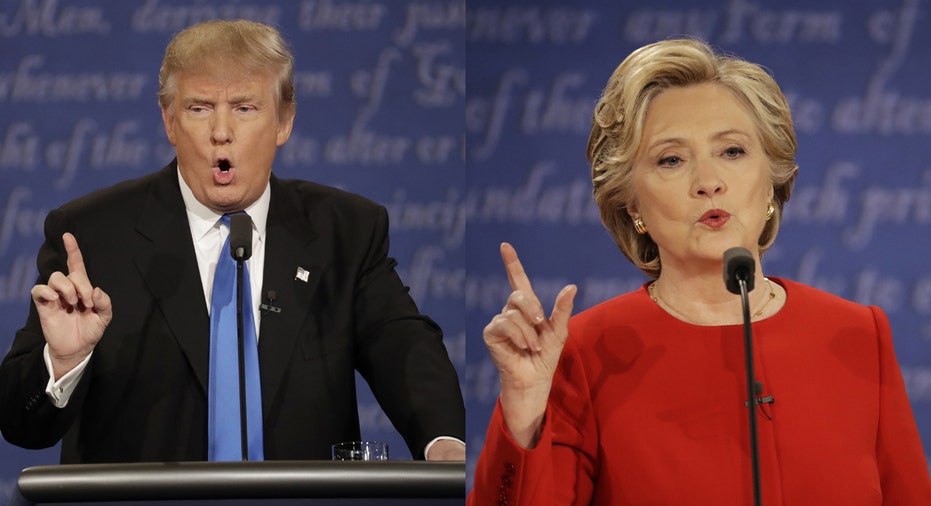Why Clinton, Trump Avoid Talking About This One Issue

It seems that everything was on the table this election except maybe one of the most important public health issues facing Americans today—food.
“Food issues are hugely controversial and election campaigns do everything they can to avoid controversy," Marion Nestle, the Paulette Goddard Professor of Nutrition, Food Studies, and Public Health at New York University tells FOXBusiness.com.
Today, one in six people in America face hunger. Food insecurity exists in every county in America with more than 45 million Americans relying on government assistance to eat.
In addition to that, upwards of 75% of processed food on supermarket shelves today—from soda to soup, crackers to condiments—contain genetically modified organisms or GMOs, which has been a controversial topic for Americans for decades.
“People have a general fear of GMOs and much of it is justified. I think that corporations have a for-profit motives, and many times those motives are in direct conflict with public health. GMOs can often times be important and helpful to our food supply, however, they can also be very daunting and frightening with a lack of transparency and information,” says Charles Platkin, Ph.D., J.D., M.P.H, Executive Director at the NYC Food Policy Center at Hunter College.
According to the Non-GMO Project, a non-profit that provides Non-GMO labeling verification for products, 92% of Americans want GMOs labeled.
“This election has been bizarre in so many ways that it’s hard to say why food issues and GMOs haven’t been a bigger focus. I would say that in general, many important, serious issues (like food, which we all depend upon for our survival) have taken a back burner to more sensational topics,” says Megan Westgate, Director of the Non-GMO Project.
Platkin says neither Clinton or Trump has been very strong on food-related issues.
“Hillary Clinton is often connected with being better policy-wise because she is associated with an increased minimum wage, which benefits many of those who work in the food industry. Donald Trump has suggested relaxing regulations (and a regulatory moratorium) around food safety and is advocating a repeal of the Affordable Care Act, which includes the calorie menu labeling law,” he adds.
Bob Martin, policy director at John Hopkins Center for a Livable Future says food has never been a big taking point in the race to the White House.
"Because of the abundance of cheap food since the end of World War II, people in the U.S. have never faced food shortages and, therefore, take food availability for granted. That can cause food issues to not be a primary concern to voters, or politicians and therefore are ignored during Presidential debate,” he says.
Nestle also says another one of the major reasons it’s ignored is because a lot of money is at stake.
“The food industry is fragmented among thousands of companies and trade associations all competing with each other for consumers’ dollars. Anything that Congress does for one segment of the industry is perceived as favoritism,” she adds.
Another big area of concern is food safety. The Centers for Disease Control estimates that each year roughly one in six Americans (or 48 million people) gets sick, 128,000 are hospitalized, and 3,000 die of foodborne diseases.
“We need to have more transparency and a more sophisticated, better monitoring system. Perhaps using technology to improve monitoring of food production and food safety can have a big impact. For instance, using social media scrapping to identify food safety issues and/or violators,” says Platkin.
“Even one fatality that is caused by a food safety issue is not acceptable today," he adds.



















